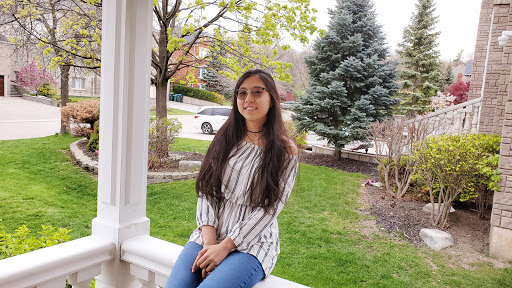Picking the right genre for what you want to say is much like choosing the right baking pan for your batter: the structure will shape the end results. As Stella Xia (Canada) points out, “within a certain form, certain messages work better than others”—an insight that has proved fruitful for Stella, who not only won Best Spoken Word in our Poetry & Spoken Word competition, but was a finalist in our Song Writing Competition!
We talk to Stella about the relationship between language and emotion, the spoken word artists she admires, and more!

How long have you been writing and performing spoken word, and how have you honed your craft?
I admit this is the second official spoken word poem I have ever written (the first being for a school assignment some years back). However, in my other poetry, I have always gravitated towards spoken word elements—rhythm, rhyme, and conveying a concrete message—over the imagery, metaphor, and openness to interpretation that take priority in free verse. I find that the most effective slam poems don’t need layers of literary analysis in order to appreciate their beauty—in the heat of the moment, no member of the audience has time for that. Instead, my favourite pieces are the ones that rope me into a story or paint a picture of a certain character, ones where the impact is strong and immediate and leave me not knowing how to react.
Guest Judge Jacob Sam-La Rose said, “the power in this poem lies in the tension between that absolute and dizzying joy of what language can do, and the pain of the experience it details.” Did you consciously create this juxtaposition, or did it arise from your natural style?
I’m a strong believer that language can be manipulated to amplify any emotion, and this could not be more true in the performative nature of slam poetry. In “Dandelion,” I tried to take performance into account while I wrote, whether by muttering each line out loud to myself to make sure it flowed or throwing in a few more assonant syllables. Engaging language is also an invitation for the listener to stay invested for longer, letting them follow along by anticipating the rhymes or feeling the natural lilt of each phrase. By paying closer attention to these literary devices, the content itself (and all the emotion attached to it) comes through more clearly as well.
Your song “Fifteen” was named a finalist in our Song Writing Competition. How does your spoken word poetry inform your songwriting and vice versa?
I think what form I choose to use influences the message; within a certain form, certain messages work better than others. That said, the essence of each piece boils down to the words themselves, regardless of the conventions that can be toyed with. For example, spoken word lets me experiment with metaphor and emphasis and has greater flexibility when it comes to delivery, liberties that I need to take to best talk about the alienation I feel as a second-generation immigrant. Songwriting, on the other hand, offers a completely different dimension of expression: music. In “Fifteen,” I used melody and harmony as vessels for loneliness.
Which spoken word artists are inspiring you right now?
Through my adventures down spoken word YouTube, I’ve discovered a few gems: Amanda Gorman’s compelling wordplay; Maia Mayor’s insistent relatability, Sarah Kay’s enrapturing storytelling, and Harry Baker’s unfailing wit—none of those descriptions do any of them justice, but they never fail to remind me why I write. While we’re here, I’d also like to mention Lin-Manuel Miranda (soliloquy and rap are close enough to spoken word, right?)—Hamilton lurks in the back of my mind as inspiration for every single one of my creative pursuits.





